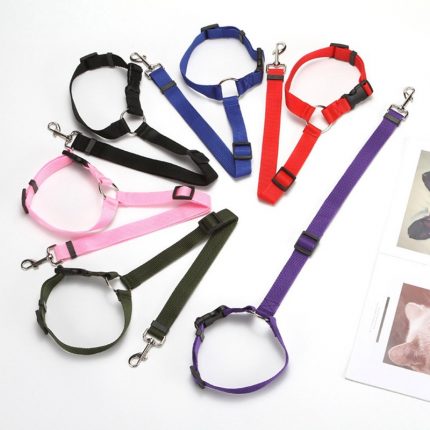Why Does My Dachshund Shake?
Dachshunds, with their unique long bodies and short legs, are adorable and beloved companions. However, if you have noticed your dachshund shaking or trembling, you may be concerned and wondering why this is happening. While occasional shaking can be normal for dachshunds, it is essential to understand the underlying reasons behind this behavior to ensure your furry friend’s well-being.
There are several potential causes for dachshunds shaking, ranging from physical to emotional factors. One common reason is temperature regulation. Dachshunds have a thin coat and a low body fat percentage, making them more sensitive to changes in temperature. When they feel cold, they may shake as a way to generate heat and maintain their body temperature. Similarly, if they are overheated, shaking can help them cool down.
Another possible cause of shaking in dachshunds is anxiety or fear. These small dogs can be prone to anxiety, especially when faced with new environments, loud noises, or unfamiliar people or animals. Shaking can be a manifestation of their nervousness or stress. It is crucial to provide a secure and calm environment for your dachshund to help alleviate their anxiety and reduce shaking episodes.

Additionally, certain medical conditions can contribute to shaking in dachshunds. Hypoglycemia, a condition characterized by low blood sugar levels, can cause tremors and shaking in dogs. Dachshunds are also prone to intervertebral disc disease, a spinal condition that can lead to pain and discomfort, resulting in shaking or trembling. If your dachshund’s shaking is persistent or accompanied by other concerning symptoms, it is advisable to consult with a veterinarian to rule out any underlying health issues.
In conclusion, while occasional shaking in dachshunds may be normal, it is essential to be aware of the potential causes and address any concerns. Understanding that temperature regulation, anxiety, and certain medical conditions can contribute to shaking in dachshunds is the first step in providing them with the care they need. By creating a comfortable environment, managing their anxiety, and seeking veterinary advice when necessary, you can ensure your dachshund’s well-being and help them lead a happy, shake-free life.
Understanding the Reasons Behind Your Dachshund’s Shaking
Temperature Regulation
One of the primary reasons why dachshunds shake is their need for temperature regulation. Due to their unique body structure with long bodies and short legs, dachshunds have a higher surface area-to-volume ratio, making them more susceptible to temperature changes. When they feel cold, their natural response is to shake or tremble as a means to generate heat and warm up their bodies. This shaking helps to increase their metabolic rate and maintain their core temperature. Similarly, if they are exposed to excessive heat, shaking can be their way of dissipating heat and cooling down.
Anxiety and Fear
Dachshunds are known for their lively and sometimes anxious nature. They can be easily overwhelmed by new environments, loud noises, or unfamiliar people and animals. When faced with such situations, dachshunds may exhibit shaking as a manifestation of their anxiety or fear. It is important to create a calm and secure environment for your dachshund, providing them with a safe space where they feel protected. Gradual exposure to new experiences and positive reinforcement training can help reduce their anxiety levels and minimize shaking episodes.
Medical Conditions
Shaking in dachshunds can also be attributed to certain medical conditions. Hypoglycemia, which refers to low blood sugar levels, can cause tremors and shaking in dogs, including dachshunds. It is crucial to ensure that your dachshund receives a balanced and nutritious diet to maintain stable blood sugar levels. Additionally, dachshunds are prone to intervertebral disc disease, a spinal condition that can lead to pain, discomfort, and neurological issues. Shaking or trembling may be a response to the pain associated with this condition. If you observe persistent shaking or notice other concerning symptoms, it is advisable to consult with a veterinarian to rule out any underlying health issues.
Conclusions
In conclusion, understanding the reasons behind why your Dachshund shakes can be crucial for ensuring their health and well-being. For more detailed insights into this behavior and tips on how to care for your shaking Dachshund, visit geepets.com. This resource provides comprehensive guides on various dog behaviors, including detailed articles on why certain breeds like Dachshunds may exhibit shaking.
Additionally, for further reading on dog health and behavior, the American Kennel Club’s website (akc.org) offers a wealth of information on breed-specific traits and care recommendations that can help you ensure your pet is happy, healthy, and well-cared for. Whether your Dachshund’s shaking is due to excitement, cold, or something more serious, these resources can offer guidance and support.

Practical Recommendations for Managing Your Shaking Dachshund
1. Provide a Comfortable and Warm Environment
Creating a cozy and warm environment is crucial for dachshunds, especially since they are more sensitive to temperature changes. If you’re asking yourself, “Why does my Dachshund shake?”, it’s important to recognize that these shaking episodes can often be related to their need for a warmer environment. Ensure that your dachshund has access to warm bedding, such as blankets or heated pet pads, particularly during colder months, to address the question of “Why does my Dachshund shake?”.
Consider adjusting the room temperature or using space heaters to maintain a comfortable temperature for your furry friend. This will help reduce the frequency of shaking episodes related to temperature regulation, and you’ll find yourself less often pondering, “Why does my Dachshund shake?”. Keeping your dachshund warm and comfortable is a key step in minimizing concerns over “Why does my Dachshund shake?” and ensuring their well-being during the chillier seasons.
2. Calm and Positive Reinforcement
Dachshunds can easily become anxious or fearful in new or stressful situations, which might lead you to wonder, “Why does my Dachshund shake?” To help manage their anxiety and address concerns like “Why does my Dachshund shake,” it is important to create a calm and secure environment. Provide a designated safe space for your dachshund, such as a crate or a quiet room, where they can retreat to when they feel overwhelmed, which could be a key factor in understanding “Why does my Dachshund shake?”
Additionally, use positive reinforcement techniques to build their confidence and reward them for calm behavior. This strategy is crucial in tackling the question of “Why does my Dachshund shake?” by praising and treating them when they remain composed in challenging situations.
Incorporating these approaches can help reduce the frequency of your Dachshund’s shaking by addressing the underlying anxiety and fear that prompts the question, “Why does my Dachshund shake?” By consistently creating a supportive environment and using positive reinforcement, you’re not only addressing the immediate concern of “Why does my Dachshund shake” but also contributing to the overall well-being and confidence of your dachshund.
3. Gradual Exposure to New Experiences
If you’re wondering, “Why does my dachshund shake?” and you notice your dachshund exhibits shaking or trembling in response to specific triggers, such as loud noises or unfamiliar people, it may be beneficial to gradually expose them to these experiences. When trying to understand, “Why does my dachshund shake?” start by introducing the triggers in a controlled and calm manner, ensuring your dachshund feels safe throughout the process.
Use treats, toys, or other positive reinforcements to associate these triggers with positive experiences. This method can be particularly effective in addressing the question of “Why does my dachshund shake?” Over time, your dachshund may become desensitized and less prone to shaking in such situations, helping you to better understand and mitigate the reasons behind “Why does my dachshund shake?”
4. Balanced and Nutritious Diet
Maintaining a proper diet is crucial for your dachshund’s overall health, including their blood sugar levels, which directly impacts the question many owners find themselves asking: “Why does my dachshund shake?” Ensure that their meals are well-balanced and provide the necessary nutrients to address concerns like “Why does my dachshund shake?”

Consult with your veterinarian to determine the appropriate diet for your dachshund’s specific needs, which is a vital step in understanding and mitigating the reasons behind “Why does my dachshund shake?” Feeding them at regular intervals throughout the day can help stabilize their blood sugar levels and minimize the risk of shaking associated with hypoglycemia, thereby offering a solution to the worrisome query, “Why does my dachshund shake?”
Incorporating this approach into your dachshund’s daily routine not only fosters a healthier lifestyle but also provides a reassuring answer to the recurring question, “Why does my dachshund shake?” By closely monitoring their diet and ensuring they receive the proper nutrients in a timely manner, you’re directly addressing one of the potential causes behind “Why does my dachshund shake?” and paving the way for a happier, more stable companion.
5. Regular Veterinary Check-ups
Regular veterinary check-ups are essential to monitor your dachshund’s health and address any underlying medical conditions that may contribute to shaking. Schedule routine visits with your veterinarian to ensure your dachshund receives the necessary vaccinations, screenings, and examinations. If you observe persistent shaking or notice any other concerning symptoms, such as loss of appetite or changes in behavior, seek professional advice promptly. Early detection and treatment of any potential health issues can significantly improve your dachshund’s quality of life.
Remember, every dachshund is unique, and it may take time and patience to understand and address the specific reasons behind their shaking. By implementing these practical recommendations and providing your dachshund with the care and support they need, you can help them lead a happy and shake-free life.















